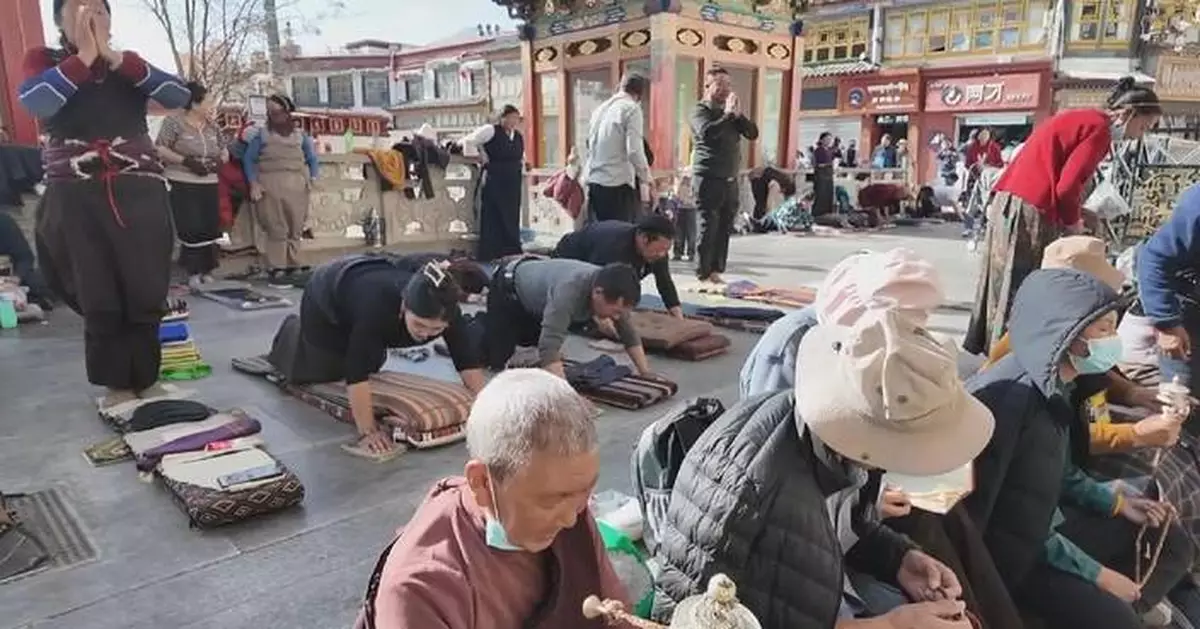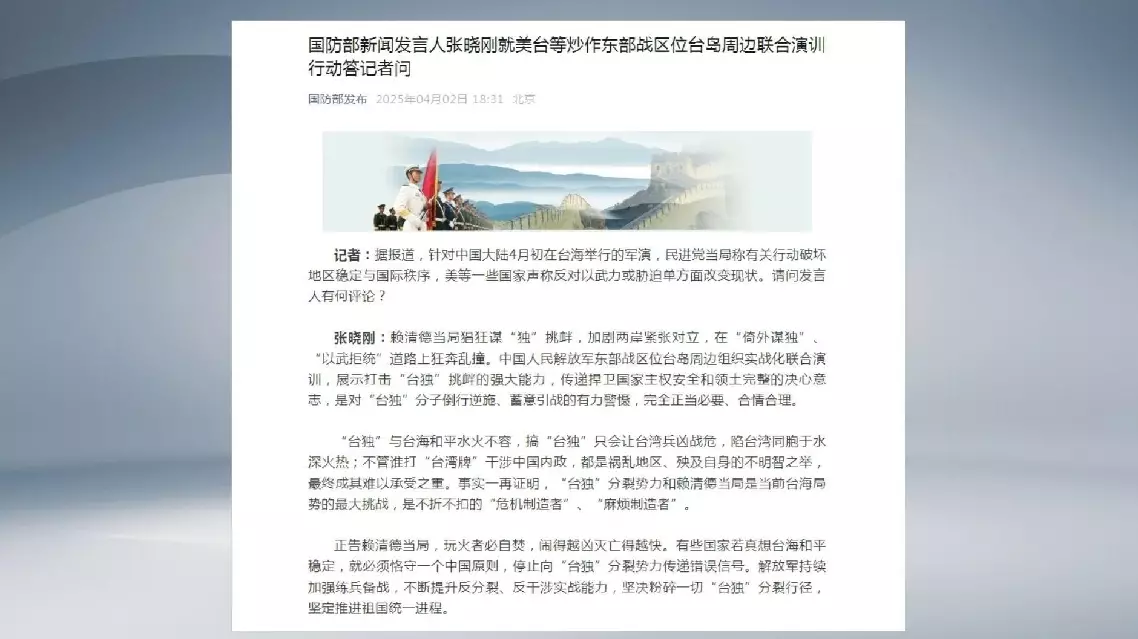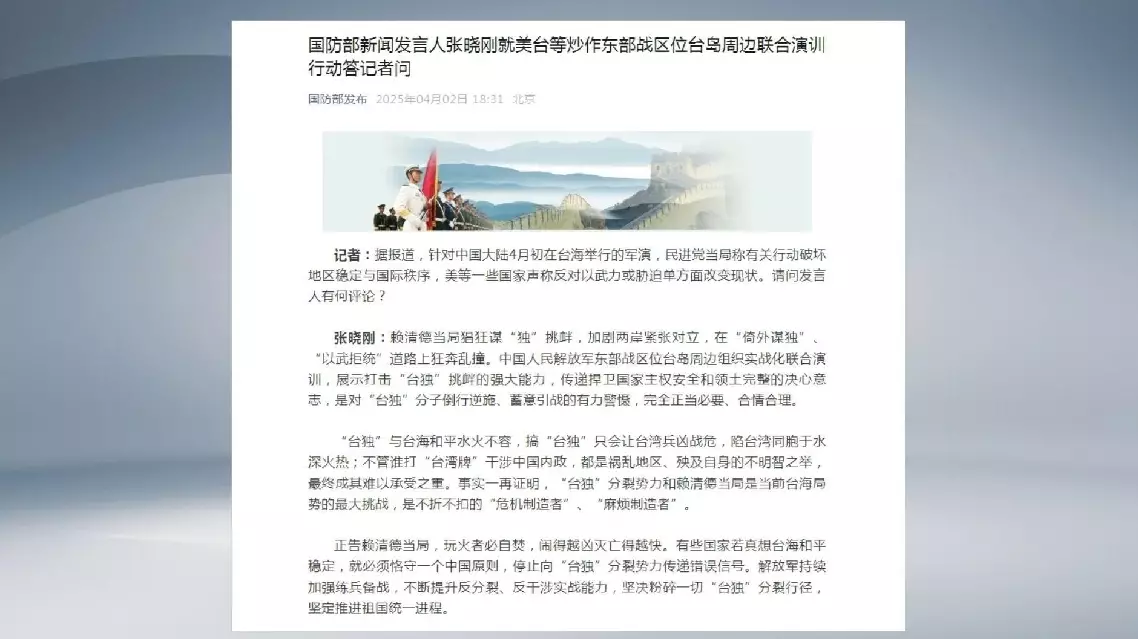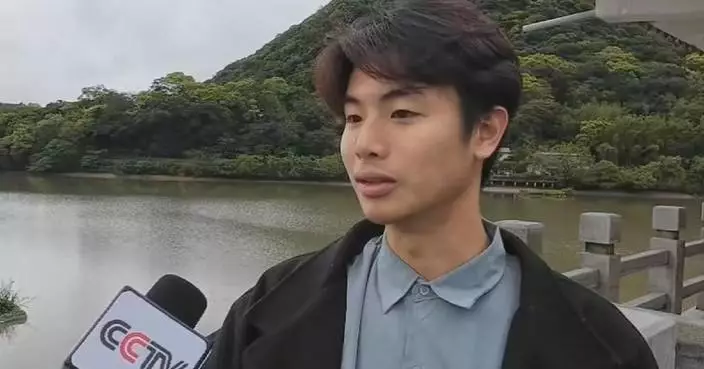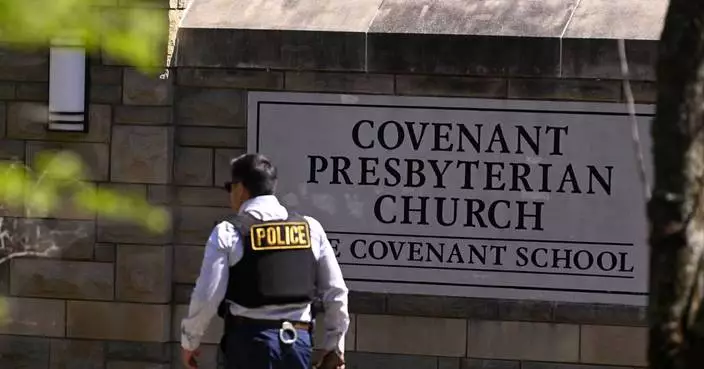Tibetan Buddhism continues to flourish in China's Xizang Autonomous Region, where believers and monks say their religious freedom is being actively protected and preserved.
A new white paper released by China's State Council Information Office highlights the country's efforts to safeguard human rights in Xizang, particularly the freedom of religious beliefs. The document, titled "Human Rights in Xizang in the New Era", emphasizes the continued vitality of Tibetan Buddhism -- a religion practiced for over 1,300 years in the region.
At the heart of this tradition is Lhasa's Jokhang Temple, a sacred site attracting millions of pilgrims and tourists each year, where Buddhism started to spread in Xizang.
Pilgrims from across the country -- including regions like Xigaze, Baqing, and as far away as Beijing and Guizhou -- travel to Lhasa to pay their respects.
In the 7th century, the Tobo King Songzanganbu united Xizang for the first time. His wife, Princess Wencheng from the Tang Dynasty (618-907) royal house, brought a precious statue of Sakyamuni from the Tang capital. That statue is still worshiped in the temple today.
That statue, said to have been blessed by Buddha himself, is now one of the most revered relics in Tibetan Buddhism.
"For the Jokhang Temple, we have the statue of Buddha Sakyamuni, which was blessed by the Buddha himself while he was still alive. It's very rare in the world and very special for Tibetan Buddhism," said Laba, deputy abbot of the Jokhang Temple Management Committee.
Laba also expressed optimism about the current environment for religious practice, saying that the government pays great attention to protecting and promoting Tibetan Buddhism and culture.
"As monks, what we pay tribute to is the founder. We believe in their philosophy and their instructions -- we don't hold idol of specific figure, the reincarnation of the living Buddha. We should follow specific historical conventions and rituals," said Laba.
Beyond worship, temples in Xizang serve as spiritual academies. Monks are trained in religious rituals, classical Buddhist philosophy, and traditional customs -- all passed down through generations in incense-filled halls.
The Chinese Constitution enshrines the right to religious beliefs. The recent white paper reinforces the government's stance that the protection of this right is a crucial part of human rights development in Xizang.
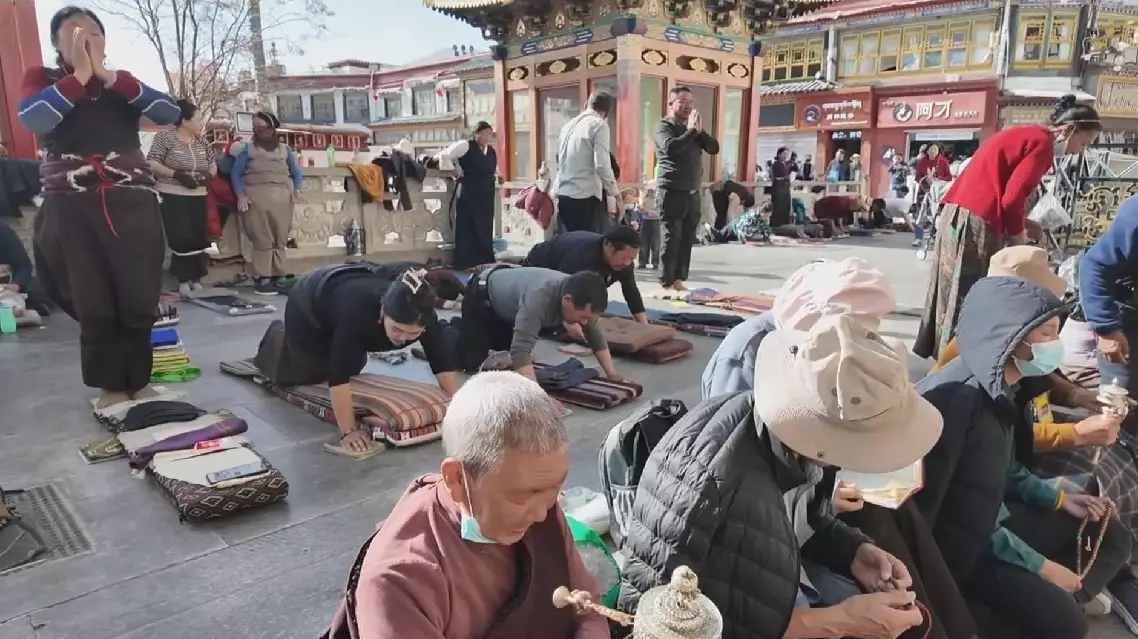
Religious freedom protected, thrives in China's Xizang


